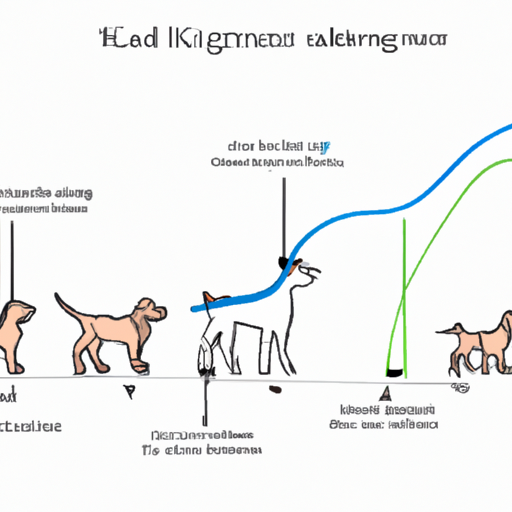Understanding Your Pup’s Growth Phase
As a loving caregiver, you are bound to have concerns about your dog’s growth. As with humans, dogs follow a growth trajectory that eventually plateaus. But when exactly do dogs stop growing?
The answer is, it varies. Dogs, like humans, don’t grow at the same rate. Factors such as breed, nutrition, and overall health play significant roles in determining when a dog reaches its full height. Let’s delve deeper into these factors.
Factors Influencing Your Dog’s Growth
- Breed: Larger breeds like the Great Dane or Mastiff typically take longer to reach their full height compared to smaller breeds like the Dachshund or Chihuahua.
| Breed | Approximate time to reach full height |
|---|---|
| Small Breed | 6 – 8 months |
| Medium Breed | 12 months |
| Large Breed | 18 – 24 months |
-
Nutrition: A balanced diet is key to ensuring your dog grows to its full potential. Overfeeding can lead to obesity, which can stunt growth and cause other health issues.
-
Health: Regular vet check-ups are crucial for monitoring your pup’s growth and detecting any potential health problems early on.
Recognizing Signs of Growth Plateau
While it’s difficult to pinpoint the exact timeframe of when your dog will stop growing, there are signs you can look for. These include:
- Decreased appetite
- Decreased energy levels
- The dog seems content with its size
Remember, these are general signs and may not apply to every dog. Always consult with your vet if you have concerns about your dog’s growth or overall health.
The Role of Genetics in Your Dog’s Growth
Just as you inherited certain traits from your parents, so does your furry friend from its parents. Genetics determine the maximum height a dog can reach. While you can’t control genetics, you can ensure your pup has the best possible conditions for growth.
Ensuring your Dog’s Healthy Growth
To ensure your dog’s healthy growth:
- Provide a balanced diet
- Regular exercise to maintain a healthy weight
- Regular vet check-ups
Frequently Asked Questions (FAQ)
Q: Can I speed up my dog’s growth?
A: No, a dog’s growth rate is determined by its genetics and cannot be sped up.
Q: What if my dog is not reaching its expected height?
A: If you have concerns about your dog’s growth, consult with your vet. They can perform tests to determine if there’s an underlying health issue.
Q: Is it normal for my dog to have growth spurts?
A: Yes, similar to humans, dogs can have growth spurts, particularly in their puppy stage.
Q: Can diet affect my dog’s height?
A: Yes, a balanced diet is crucial for healthy growth, but it won’t make your dog taller than its genetics allow.
With love and care, you can ensure your pup has the best chance to grow to its full potential. Remember, it’s not about the size but the health and happiness of your furry friend that matters most.



